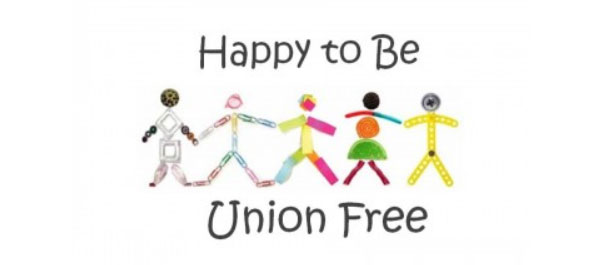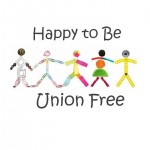REPORT: What Taxpayers Should Know About the Unionization of the Home Child Care Industry
Stenhouse discusses issue on WPRI-12 NewsMakers …
[button url=”http://www.rifreedom.org/wp-content/uploads/RICFP-ChildCareUnion-091613.pdf” target=”_blank” size=”small” style=”royalblue” ]Download Full Report (PDF)[/button]MEDIA RELEASE, 9/16/13
Providence, RI — With the independence of almost 580 home child care providers to be decided in an upcoming election about whether or not to accept the Service Employees International Union (SEIU) as their exclusive union representative, the Rhode Island Center for Freedom and Prosperity published a report today highlighting the risks to the home child care profession, to taxpayers, and to other independent small business owners and contractors in the state.
With record of broken promises and negative consequences in other states and with severe structural budget deficits, both child care professionals and taxpayers in Rhode Island should beware. The report, which reviews data from other states where similar unionization has occurred, documents the associated decrease in child care participation rates and discusses the future risk to other professions in the state.
The Center is partnering with the Coalition of Union Free Providers, a national organization comprised of child care professionals from other states, to provide information about the impact that unionization may have on the family child care profession.
“Across the country, child care providers have found themselves stuck paying high union dues and fees with little to no benefit in return. These providers often didn’t realize their businesses were targets of the SEIU until it was too late”, said Jennifer Parrish, founder of the multi-state Coalition. “Every provider has the right know all the facts, including what this will cost them and how this may impact their profession, prior to casting a ballot. When providers have access to this information, they overwhelmingly oppose unionization.”
The Rhode Island Center for Freedom and Prosperity, a nonpartisan public policy think tank, is the state’s leading free-enterprise advocacy organization. The Center works to make a profound, positive impact on the lives of every family and business in the state through the exchange of market-based ideas and reform solutions aimed at restoring economic competitiveness, educational opportunities and – ultimately – hope for a brighter future.
Report Summary
Hundreds of home-based child care professionals, who started their own businesses to build better futures for themselves, may soon lose their independence and the freedom to provide services in the manner they see fit. Most never considered that unionization would be part of their work; nor do they see themselves as incapable of operating their businesses without union representation.
Today, they are independent small business owners; in the coming weeks, if a majority of those who vote at a small special election opt to unionize, every one of them will see herself transformed into a quasi-government worker, forced to pay compulsory union dues or fees and subject to the agenda of a national and international political entity: the Service Employees International Union (SEIU).
The successful unionization of this group of providers, however, will not end the matter, with consequences reaching into industries throughout the state. Other independent service providers who receive subsidized payments from the state may also be forced to unionize against their will, including small business owners or independent contractors in other areas of child or home care, health services, real estate, or even in the retail industry.
Regarding home child care providers, this report reviews results from other states and discusses a number of important considerations and projections of which these providers and the general public should be aware, especially those who are eligible to vote in the upcoming election. If patterns observed with similar efforts in other states hold true in the Ocean State, there are a number of reasons for the child care industry, other professionals, and taxpayers to be concerned:
- Broken promises: Unions are usually not able to fulfill the promises they make to providers.
- Individual rights: Child care providers may be severely restricted.
- Reduced services: In other states, when home child care providers are unionized, the number of providers and children served usually shrinks.
- Legality: Involuntary representation by a state-selected monopoly union may be unconstitutional.
- Increased union clout: The financial and political power of the statewide union stands to be substantially increased, with up to $500,000 or more to further advance its political agenda.
- Trojan horse: The stated mission of the AFL-CIO labor union is to expand its membership in Rhode Island, targeting other independent contractors and small businesses in the state.
- Burden on taxpayers: As unions seek to provide benefits to a newly unionized professionals, it will come at taxpayer expense.
- Missed opportunities: Other alternatives do exist for child care and other service providers that might be better for everybody involved.
See Also:
Center Calls on Labor Relations Board to Revise Child Care Unionization Ballot Language
Unionization of RI Childcare Providers May Be Unconstitutional



Leave a Reply
Want to join the discussion?Feel free to contribute!